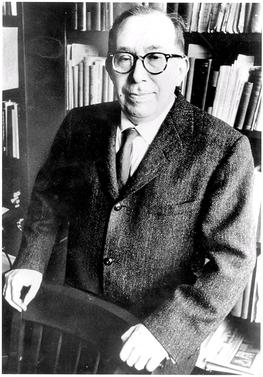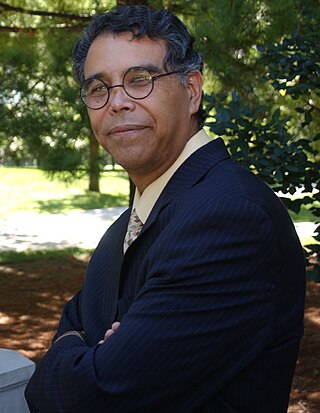Hinduism is an umbrella term for a range of Indian religious and spiritual traditions (sampradayas) that are unified by adherence to the concept of dharma, a cosmic order maintained by its followers through rituals and righteous living, as first expounded in the Vedas. The word Hindu is an exonym, and while Hinduism has been called the oldest religion in the world, it has also been described by the modern term Sanātana Dharma emphasizing its eternal nature. Another endonym for Hinduism is Vaidika Dharma.

The history of religion refers to the written record of human religious feelings, thoughts, and ideas. This period of religious history begins with the invention of writing about 5,200 years ago. The prehistory of religion involves the study of religious beliefs that existed prior to the advent of written records. One can also study comparative religious chronology through a timeline of religion, or the interrelationships and historical diversification of religious ideologies through the use of evolutionary philosophy and broad comparativism. Writing played a major role in standardizing religious texts regardless of time or location and making easier the memorization of prayers and divine rules.

Modern paganism, also known as contemporary paganism and neopaganism, spans a range of new religious movements variously influenced by the beliefs of pre-modern peoples across Europe, North Africa, and the Near East. Despite some common similarities, contemporary pagan movements are diverse, sharing no single set of beliefs, practices, or religious texts. Scholars of religion may study the phenomenon as a movement divided into different religions, while others study neopaganism as a decentralized religion with an array of denominations.
A nation is a type of social organization where a collective identity, a national identity, has emerged from a combination of shared features across a given population, such as language, history, ethnicity, culture, territory or society. Some nations are constructed around ethnicity while others are bound by political constitutions.

Sarvepalli Radhakrishnan was an Indian politician, philosopher and statesman who served as the second president of India from 1962 to 1967. He previously served as the first vice president of India from 1952 to 1962. He was the second ambassador of India to the Soviet Union from 1949 to 1952. He was also the fourth vice-chancellor of Banaras Hindu University from 1939 to 1948 and the second vice-chancellor of Andhra University from 1931 to 1936. Radhakrishnan is considered one of the most influential and distinguished 20th century scholars of comparative religion and philosophy, he held the King George V Chair of Mental and Moral Science at the University of Calcutta from 1921 to 1932 and Spalding Chair of Eastern Religion and Ethics at University of Oxford from 1936 to 1952.

Magic, sometimes spelled magick, is the application of beliefs, rituals or actions employed in the belief that they can manipulate natural or supernatural beings and forces. It is a category into which have been placed various beliefs and practices sometimes considered separate from both religion and science.

A national myth is an inspiring narrative or anecdote about a nation's past. Such myths often serve as important national symbols and affirm a set of national values. A myth is a mixture of reality and fiction, and operates in a specific social and historical setting. Social myths structure national imaginaries. A national myth may take the form of a national epic, or it may be incorporated into a civil religion. A group of related myths about a nation may be referred to as the national mythos, from μῦθος, Greek for "myth".
Eastern philosophy includes the various philosophies that originated in East and South Asia, including Chinese philosophy, Japanese philosophy, Korean philosophy, and Vietnamese philosophy, which are dominant in East Asia; and Indian philosophy, which are dominant in South Asia, Southeast Asia, Tibet, and Mongolia.

Saṃsāra is a Sanskrit word that means "wandering" as well as "world," wherein the term connotes "cyclic change" or, less formally, "running around in circles." Saṃsāra is referred to with terms or phrases such as transmigration/reincarnation, karmic cycle, or Punarjanman, and "cycle of aimless drifting, wandering or mundane existence". When related to the theory of karma it is the cycle of death and rebirth.

Leo Strauss was an American scholar of political philosophy. Born in Germany to Jewish parents, Strauss later emigrated from Germany to the United States. He spent much of his career as a professor of political science at the University of Chicago, where he taught several generations of students and published fifteen books.
In most contexts, the concept of good denotes the conduct that should be preferred when posed with a choice between possible actions. Good is generally considered to be the opposite of evil and is of ethics, morality, philosophy, and religion. The specific meaning and etymology of the term and its associated translations among ancient and contemporary languages show substantial variation in its inflection and meaning, depending on circumstances of place and history, or of philosophical or religious context.

Jewish identity is the objective or subjective sense of perceiving oneself as a Jew and as relating to being Jewish. It encompasses elements of nationhood, ethnicity, religion, and culture. Broadly defined, Jewish identity does not rely on whether one is recognized as Jewish by others or by external religious, legal, or sociological standards. Jewish identity does not need to imply religious orthodoxy. Accordingly, Jewish identity can be ethnic or cultural in nature. Jewish identity can involve ties to the Jewish community.
Steven Mitchell Nadler is an American/Canadian academic and philosopher specializing in 17th-century philosophy. He is Vilas Research Professor and the William H. Hay II Professor of Philosophy, and was Max and Frieda Weinstein-Bascom Professor of Jewish Studies at the University of Wisconsin–Madison. He is also director of their Institute for Research in the Humanities.

Polish nationalism is a nationalism which asserts that the Polish people are a nation and which affirms the cultural unity of Poles. British historian of Poland Norman Davies defines nationalism as "a doctrine ... to create a nation by arousing people's awareness of their nationality, and to mobilize their feelings into a vehicle for political action."

Hector Avalos was a professor of Religious Studies at Iowa State University, a cultural anthropologist, and the author of several books on religion. Avalos was an atheist and advocate of secular humanist ethics.

The Jews or Jewish people are an ethnoreligious group and nation originating from the Israelites of the historical kingdoms of Israel and Judah, and whose traditional religion is Judaism. Jewish ethnicity, religion, and community are highly interrelated, as Judaism is an ethnic religion, but not all ethnic Jews practice Judaism. Despite this, religious Jews regard individuals who have formally converted to Judaism as Jews.
James L. Crenshaw is the Robert L. Flowers Professor of the Old Testament at Duke University Divinity School. He is one of the world’s leading scholars in Old Testament Wisdom literature. He proposes that much of Proverbs was brought together at a time well after Solomon. He has been described as "a highly respected scholar" and an "excellent teacher".
Modern scientific research on the history of Zen discerns three main narratives concerning Zen, its history and its teachings: Traditional Zen Narrative (TZN), Buddhist Modernism (BM), Historical and Cultural Criticism (HCC). An external narrative is Nondualism, which claims Zen to be a token of a universal nondualist essence of religions.
David Lyle Jeffrey is a Canadian-American scholar of literature and religion, currently a Distinguished Senior Fellow at the Baylor Institute for Studies in Religion. He was elected a Fellow of the Royal Society of Canada (1996-). In 2003 he was given the Lifetime Achievement Award of the Conference of Christianity and Literature.
Several scholars of nationalism support the existence of nationalism in the Middle Ages. This school of thought differs from modernism, the predominant school of thought on nationalism, which suggests that nationalism developed largely after the late 18th century and the French Revolution. Theories on the existence of nationalism in the Middle Ages may belong to the general paradigms of ethnosymbolism and primordialism (perennialism).









